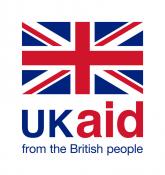
AuthorAID 2007 - 2018

Supporting Southern research and higher education institutions; Equitable knowledge Ecosystems
AuthorAID is a pioneering global network that is free to access and provides support, mentoring, resources, and training for researchers in low- and middle-income countries. AuthorAID was developed and extended through INASP’s Programme for the Enhancement of Research Information and Strengthening Research and Knowledge Systems programme in 2007-2018. It now supports a community of over 15,000 researchers in low- and middle-income countries to publish and communicate their work.
In its first phase, the primary aim of AuthorAID was to build the confidence, knowledge and skills needed by Southern researchers and organizations so that their research can be published and communicated. Since its inception in 2007, AuthorAID has developed and grown substantially to support early career researchers in different aspects of their careers. Below we outline the main components that made up AuthorAID between 2007 and 2018. These are still ongoing, and we continue to develop and improve them regularly. To read more about where AuthorAID is now and how we envision its future, click here.
Capacity strengthening in research and grant proposal writing
From the beginning, AuthorAID provided capacity strengthening opportunities to early career researchers in the Global South. While these were done in person initially, in 2013, AuthorAID began offering free-to-access online courses in research and proposal writing. These courses are interactive and moderated, with peer review exercises and discussion forums. They are still being run today and attract thousands of early career researchers each year. Within these courses, we have worked with various organisations and institutions such as the National Institute for Care and Health Research, The Organization for Women in Science for the Developing World, Education Sub-Saharan Africa, and more to offer tailored support to their researcher communities.
Mentoring
One of the main challenges that early-career researchers face is the shortage of mentors: senior researchers and more experienced peers who can provide them with advice on getting their research written and published.
AuthorAID’s mentoring system was set up to pair experienced mentors with researchers who need support at any stage of their writing project. Mentees could request help with a wide range of tasks, from specific activities such as planning the structure of an article, language editing and interpreting data, to longer-term help such as developing a grant proposal, and career planning.
The mentoring system is particularly valued by women researchers who often struggle to get the support needed in their institution.
Online discussion group
Academics in the Global South particularly struggle to find suitable collaborators to help catalyse their research projects. Access to networks and conferences is often limited because of a lack of institutional funding, and local academics may not be included on large overseas funded research projects taking place in their own fields and sectors. Opportunities like scholarships and funding are often not shared widely and don’t reach many Global South researchers.
AuthorAID’s discussion group offers an opportunity for researchers to post details of their research projects and put out a call for collaborators. In addition, researchers share funding and conference opportunities and ask questions or share challenges, which are then replied to by other researchers from across the globe.
Institutional embedding
As part of INASP’s Strengthening Research and Knowledge Systems (SRKS) project, 2013-2018, funded by DFID (UK) and Sida (Sweden), we also worked in depth with 10 universities and research institutions in Ghana, Tanzania, Sri Lanka and Vietnam to establish research-writing skills training for researchers, faculty and students. This led to the development of three master training toolkits in research writing, proposal writing, and Train the Trainer workshops, to equip their facilitators to offer continued training to their colleagues.



